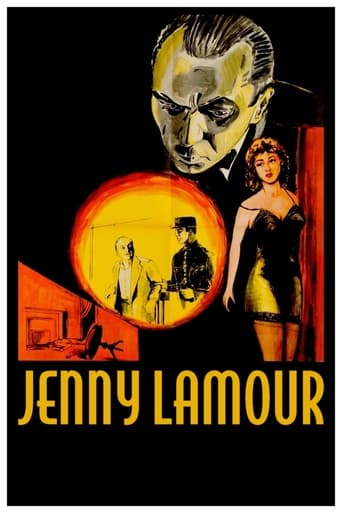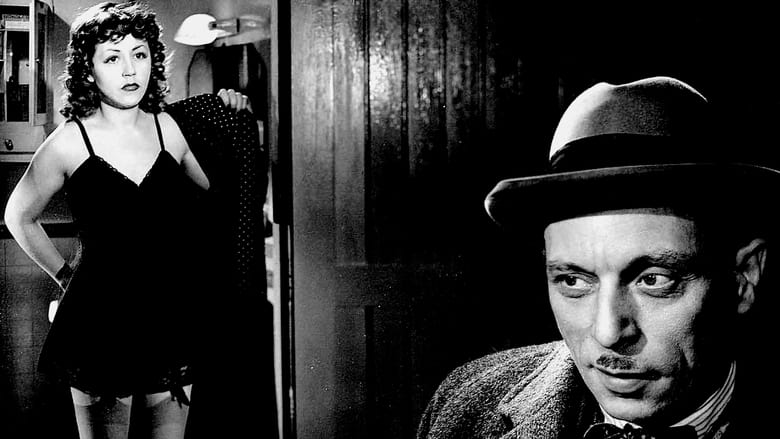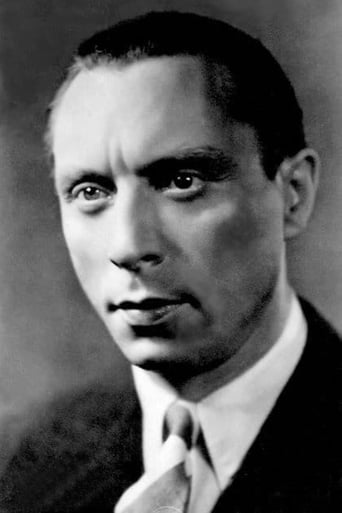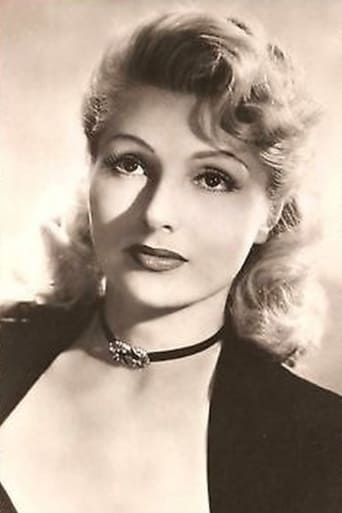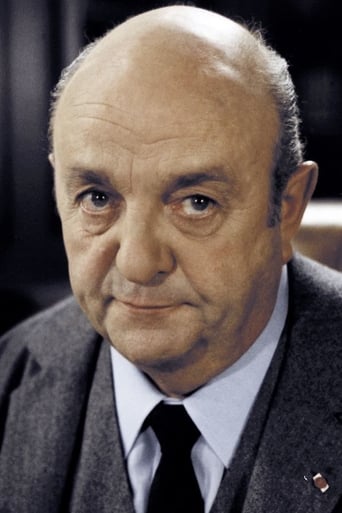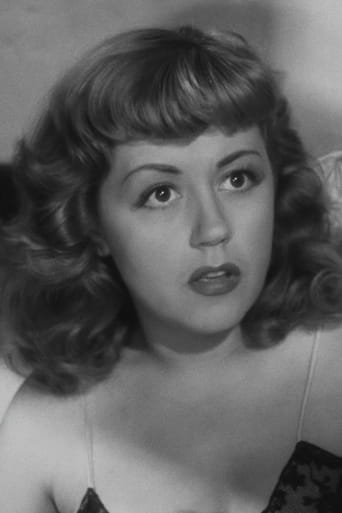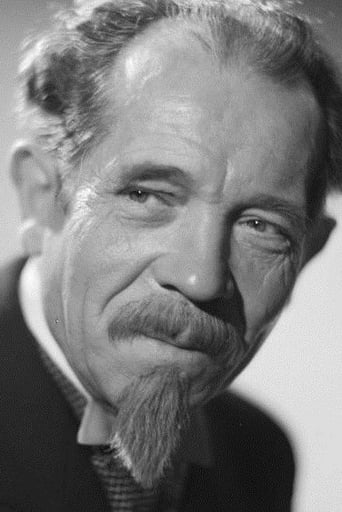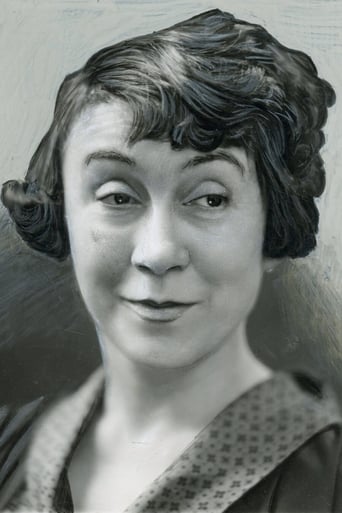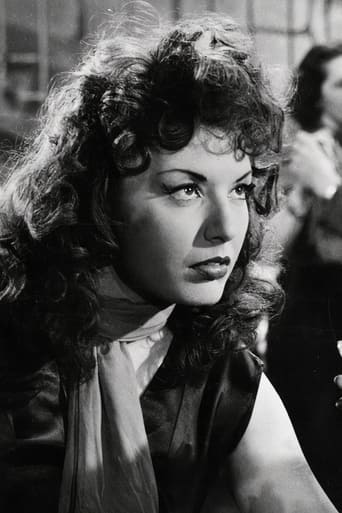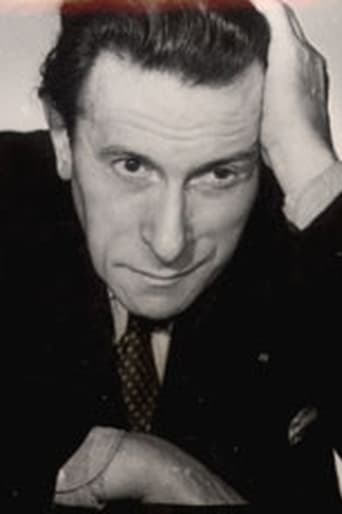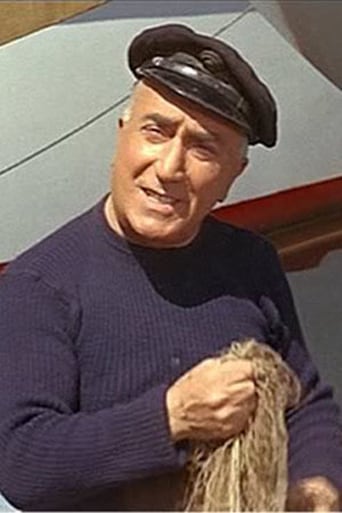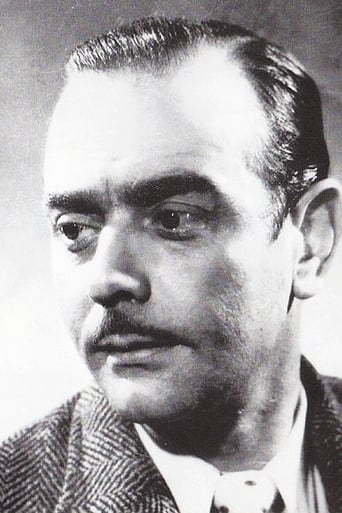Paris, France, December 1946. Jenny Lamour, an ambitious cabaret singer, and Maurice, her extremely jealous pianist husband, become involved in the thorough investigation of the murder of a shady businessman, led by Antoine, a peculiar and methodical police inspector.


Similar titles
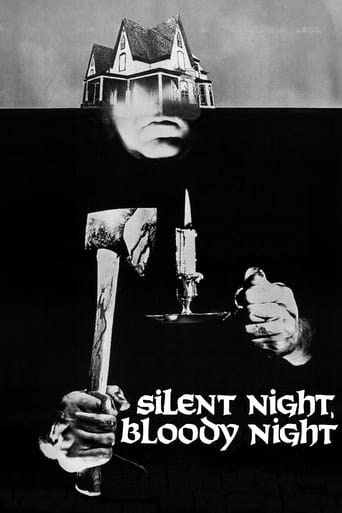
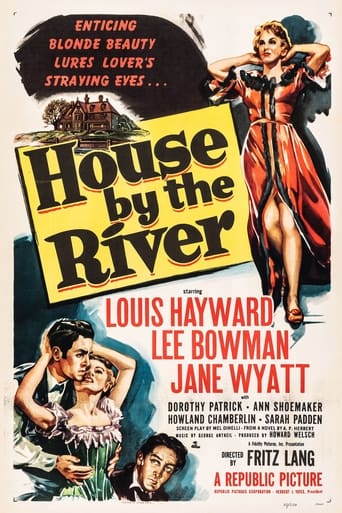


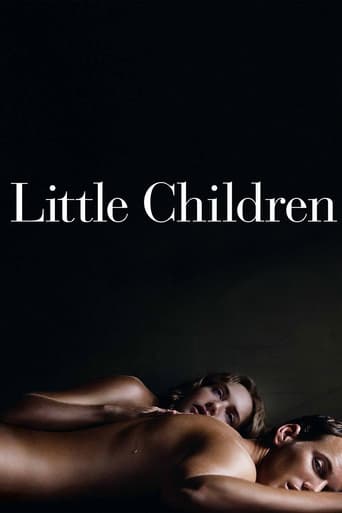
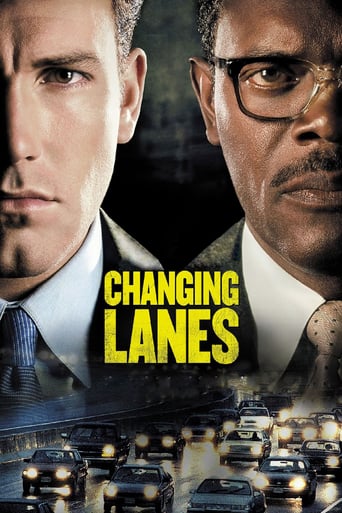
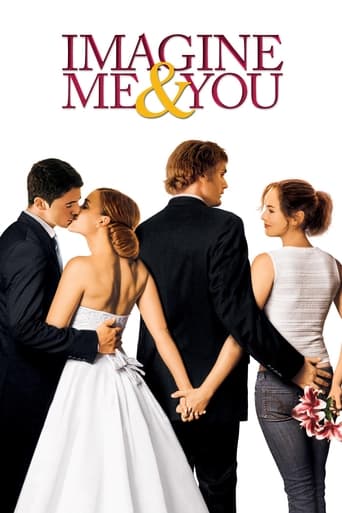
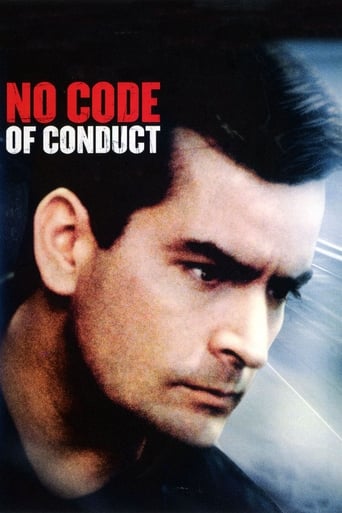
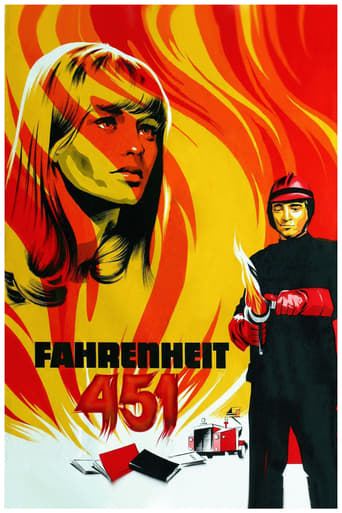
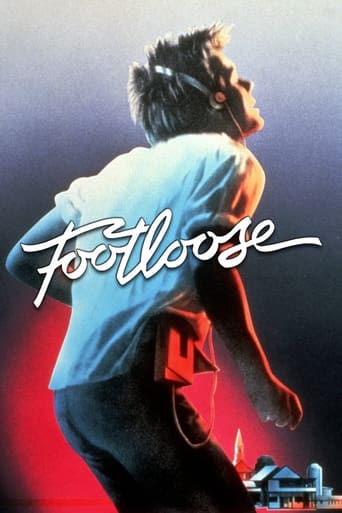
Reviews
Is it a murder mystery? Is it a police procedural? Is it a back-stage look at seedy French music halls? Quai des Orfevres is all of these, but more than anything else it's an amusing comedy of infidelity, jealousy and love, set in post-WWII Paris. It may be surprising that Henri- Georges Clouzot, the director of such grim films as Le Corbeau or such suspenseful nail- biters as Diabolique and The Wages of Fear, is the director of this one. Clouzot, however, was a shrewd film-maker. "In a murder mystery," he tells us, 'there's an element of playfulness. It's never totally realistic. In this I share Hitchcock's view, which says, 'A murder mystery is a slice of cake with raisins and candied fruit, and if you deny yourself this, you might as well film a documentary.'" Quai des Orfevres is a wonderful film, and it's no documentary. Jenny Martineau (Suzy Delair) is an ambitious singer at music halls and supper clubs. She's a flirt, she's sees nothing too wrong with using a bit of sex as well as talent to get a contract. Her stage name is Jenny Latour. And she really loves her husband, Maurice Martineau (Bernard Blier). Martineau is something of a sad sack. He's her accompanist and arranger. He's a bit balding, a bit chubby and jealous to a fault. Then we have their neighbor, the photographer Dora Monnier (Simone Renant). She's blond, gorgeous (think of Rita Hayworth) and capable. She and Martineau have been friends since they were children together. Dora, however, is definitely not thinking just of friendship when she looks at Jenny. Then comes along Georges Brignon (Charles Dullin), a wizened, rich and dirty old man, who often has Dora take "art" photographs of his young female proteges whom he poses himself. He offers a contract for a film to Jenny, and suggests a dinner at his home to discuss the details. Jenny is more than willing. Maurice is furious and forbids it. Jenny shouts right back at him, "You're jealous of the rich! Well, I want my share of their dough. I'm all for royalty!" "You're dad was a laborer," Maurice shouts back. "So what? Under Louis XV, I'd have been Madame de Pompadour! I'd have heated up their tights!" And after Brignon is found dead with a smashed champagne bottle next to his bleeding skull, there's Dora to try to make things safe for Jenny. But wait. Inspector Antoine gets the case. Antoine (Louis Jouvet) is a tall, tired, middle-aged bachelor with sore feet. He has seen it all. He served in "the colonies" with the Foreign Legion and returned with an adopted baby and malaria. The child is now about eight-years old and Antoine dotes on him. One of the first things Antoine discovers is not only did someone brain Brignon with a bottle, someone shot him in the heart. Who did it? Before long Jenny, Maurice and Dora all are making up alibis, lying and, at one or another point, confessing. How will Antoine discover the murderer? Will we have a chance to see some great music hall songs sung by Jenny Latour? Everything becomes clear, but only with time and Detective Antoine's persistence. We are left with many kinds of love leading to all kinds of motives, from hair-trigger jealousy to longing glances...and all played with a nice mixture of Gallic amusement. Clouzot takes us to a Paris of seedy but not threatening neighborhoods, to downtrodden music publishers where tunes are played on the piano for buyers, to restaurants with discrete private dining rooms. Most of all, he takes us to the music hall where Jenny Latour often performs. We can see Jenny as she sings, with couples in the seats and single men wearing their coats and hats in standing room. And everyone smokes. The first third of the film, in fact, takes place largely in this milieu. With Jenny singing about "Her petite tra-la-la, her sweet tra-la-la," we follow her from trying out the song at the publishers to a rehearsal to a saucy performance with Jenny in a feathered hat, a corset, gartered stockings and not much else. Delair, Blier and Renant all do wonderful jobs, but it Louis Jouvet who holds everything together. He was a marvelous actor who disliked making films. The stage was his world, and he took on films only if he happened to like the director and to make money to finance his stage work. Jouvet was tall with a long face and broad cheekbones. He was not conventionally handsome but he had what it takes to dominate a scene. For a look at how skillfully he could play comedy, watch him in Drole de Drame. He's a fascinating actor. At one point he says, "I've taken a liking to you, Miss Dora Monnier." "Me?" she asks. "Yes. Because you and I are two of a kind. When it comes to women, we'll never have a chance." Jouvet brings all kinds of nuances to that line, from rueful regret to a gentle amusement.
One of the best film I ever saw.The performance of Louis Jouvet is fantastic. He really 'fill' his part, and this is wonderful. He's such a good actor that you can't think of anyone else to take his part. And both Suzy Delair and Bernard Blier are good as standard french people, trying to defend themselves in the struggle born with a murder...The story is breathtaking and well built. You can feel the ambiance of Paris for that period (which is about 1930-40), between two wars... The clubs, the old little buildings, the neighbors.All those things contribute to make a great movie.
Great artists, always suffered while they were young. I could mention Mozart and Beethoven, but that is not the point. This movie was made by H-G Clouzot whose family wanted him to succeed in the Law professions.Its main star is Louis Jouvet who studied and practiced as as pharmacist before becoming "The Greatest Actor" and also director of France's Theater before and after WWII.They both had health problems. Clouzot had TB while young, Jouvet had cardiac problems and died on a theater..Such events shape the character of men (and women, of course). One might even say that today's Artists are so poor, because they had never suffered and fought for their lives.To me, this is the greatest of Clouzot's movies. "Wages of Fear" is greater in "suspense", "Diabolique" also has more "suspense" and a better plot and is more about "female evil".Quai des Orfèvres is more human. Clouzot was falsely accused by De Gaulle's entourage (mostly communists and Jews) of collaboration with the Nazis and banned from making films until until De Gaulle left France's Government in early 1946. De Gaulle came back in 1958, as President.The main characters are all good souls: Jenny L'Amour may perform as a "putain" on stage, but she is not a "whore" (dictionaires make synonyms of those words, but they are not the same), loves her husband, and refuses the slight "advances from her (presumably Lesbian) friend Dora, the photographer.Maurice the husband is jealous and timid, but runs away from the scene of the crime. He is a coward because he fell in love with a woman and traded an eventually more upscale career for love..Antoine, the detective (interpreted by the great Louis Jouvet, basically a stage actor, performs in this French "Gray" not Noir, as well as E.G. Robinson in "Double Indemnity") shows flair for pseudo criminals, tenderness for a Negro son(?), and compassion for the true author of the crime, because he remembers that is father cleaned the latrines at some nobleman's château!!Clouzot was capable of slapping an actor's face in order to put him in the right frame of mind, but deep inside he was very human. I have his horoscope in front of me. He had Venus in Sagittarius which means open-heartedness, devotion, charity and altruism. For those who do not believe in Astrology, my most sincere apologies...
What do you get when you have a tenacious, seasoned French police inspector by the name of Maurice Martineau is called to solve a murder case? Well, simply a very entertaining, fun film. The re-mastered black-and-white film "Quai des Orfevres" delivers the goods despite romance, jealousy and marriage that seem to just get in the way towards the truth of 'who done it?'Inch by inch, technique by technique as seasoned by experience and intuition, the patience of this master Inspector etches into the truth -- but of course, with the help of a bag full of dirty police interrogation tricks.Martineau is the centerpiece of this film. The use by director Henri-Georges Clouzot of raucous background music to intensify the drama in grand film noir style is a wonderful wrapper around the visual experience.Martineau eventually solves the mystery and arrests the culprit. Hey, he is good!! But alas, Martineau, too, can keep a dark secret in his past. Who is that boy that is perhaps not his son?Some things can never get solved -- even beyond the closing credits.
